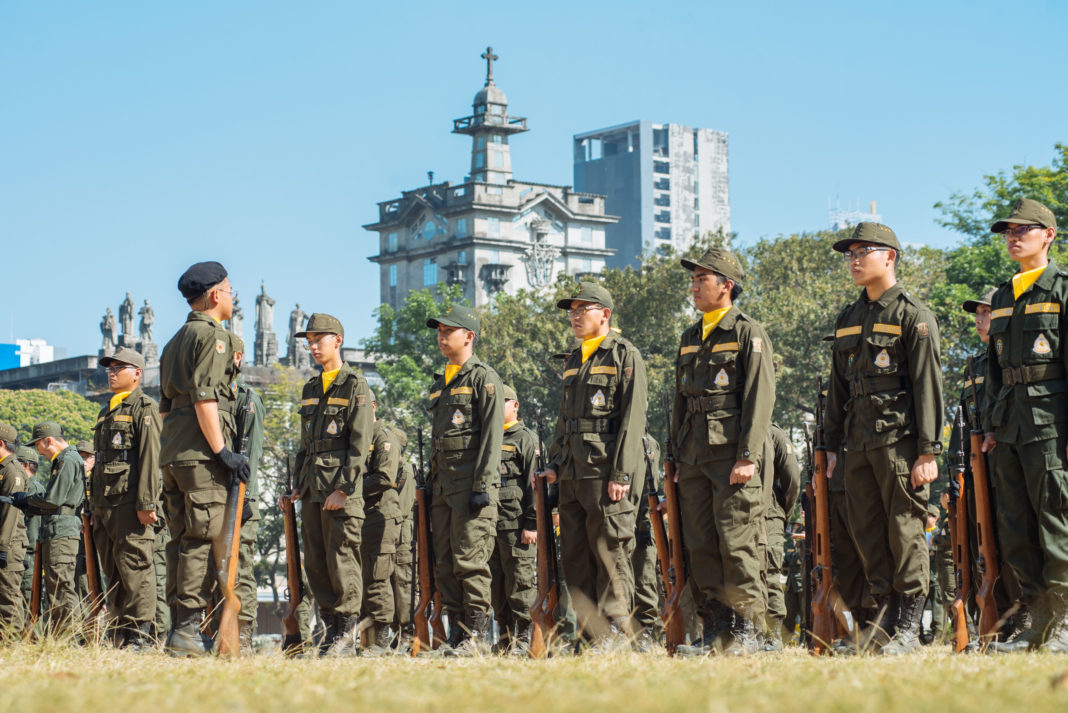EDUCATION sector lawyers have expressed reservations on the proposed mandatory participation of Senior High School (SHS) students in the Reserved Officers’ Training Corps (ROTC).
Lawyer Joseph Noel Estrada, legal counsel of the Catholic Educational Association of the Philippines, said the Armed Forces of the Philippines (AFP) lacked personnel to handle the ROTC program. There are also limited physical spaces available in senior high schools around the country to conduct the program.
“AFP said it would need at least one personnel per school. [There is not] enough AFP personnel to handle the ROTC program in every school,” he said.
For lawyer Teodoro Lorenzo Fernandez, who teaches at the Faculty of Arts and Letters, the training of civilians under the ROTC program will allow more people to defend the State in cases of invasion.
He said, however, that there is no assurance that the ROTC participants would have a “meaningful” training.
“[If] legal basis is concerned, walang problema, nasa Constitution ‘yan. Pero ‘yong actual enforcement noong batas and so far as the training is concerned, doon lang I think nagkaka-problema, unless matutukan ng AFP ‘yan,” he told the Varsitarian.
In February, the House of Representatives approved on second reading House Bill 8961, which seeks to make the ROTC program compulsory for students in Grades 11 and 12.
The death of former UST ROTC cadet Mark Welson Chua in 2001 had led to the abolition of mandatory ROTC, resulting in the passage of the National Service Training Program law that gave students the option to enroll in Civil Welfare Training Services or Literacy Training Services.
Chua, then a 19-year-old mechanical engineering student, was killed after disclosing to the Varsitarian in January 2001, together with his fellow cadet Romulo Yumul, the corruption in the University’s ROTC program.
Reforms in the system
ROTC Class of 2016 sergeant Patricia Joy Mobilla said UST’s ROTC unit had been “transparent” with its activities and funds as well as complied with all guidelines.
She added that they are “always in coordination” with Office for Student Affairs Director Ma. Socorro Guan Hing.
“As graduate military assistant, maayos na ‘yong system namin dito… That’s the change, we are really complying with what UST is giving to the department. Kung anong kailangan i-comply ng [aming] department, we comply,” Joy said in an interview.
Class of 2016 sergeant Patricia Ann Mobilla, meanwhile, pointed out that they do not handle ROTC funds upon the basic cadet’s enrollment to the program. All expenses are liquidated.
“May activities lang kami na puwede maglabas ng pera… Bale wala talaga kaming halos nahahawakan na pera unless magre-request kami [kasi] kailangan mali-liquidate. [Kailangan din kasi siya] for the year-ender [summary],” she said.
Joy said they are “cautious” in handling basic cadets during ROTC training. Officers keep in mind the guidelines of the Anti-Hazing Law and their standard operating procedure in handling basic cadets, which is revised annually.
They also conduct an orientation for the parents on the first day of training. ROTC trainings are conducted openly in the UST field every Sunday.
“Obvious naman sa mga bata na maraming mabilis na magreklamo. So ‘yung mga ganon siyempre, kami rin, dahil hindi na nga mawala ‘yong tag kay Mark Chua, iniiwasan namin… Puwede naman silang magsumbong,” she said.
UST-ROTC ‘prepared’
Should the mandatory ROTC commence, the University’s ROTC unit is “ready.”
“Kaya naman. Umabot din naman kami ng 2,000 basic cadets and na-handle naman siya. Siguro talaga mag-fofocus lang kami sa planning bago siya matuloy, may help naman ang training staff at administration namin,” Kate Manodon, UST ROTC corps commander, said.
Manodon said the SHS administration had reached out to them about the compulsory ROTC program.
“Recently kino-contact na kami ng SHS regarding that… napag-uusapan lang naman pero hindi pa official. Tinatanong din kami kung pwede kami mag-handle ng sa SHS. Kung mandatory kasi, libu-libo na,” she said.
But she pointed out that the University’s ROTC unit needs to “recover” from the K to 12 transition to normalize the number of basic cadet and cadet officers and maintain the functionality of the department. The number of basic cadet enrollees is necessary as the department’s funds depend on it.
“All of the funds used during the whole academic year is programmed based on the income from the enrolled cadets and to cater to the expectations of our accommodations and other activities,” she said.
The Varsitarian tried to reach out to SHS acting principal Erika Bolanos but she has yet to respond.
‘Address ills of the past’
Estrada said the government should first “strengthen” the ROTC program before planning to make it mandatory.
He said the ROTC was replaced by NSTP because of the “abuses, corruption, cover-ups and irregularities” in the military program.
The government, he said, should establish a grievance system for student complaints to ensure that there would be preventive measures against abuses, as some procedures are still not covered by the recently amended Anti-Hazing Law.
He said the AFP personnel should be trained in handling student military lessons.
“If we revive the mandatory ROTC now without addressing the ills of the past, the noble intentions of our senators to instill discipline and a sense of responsibility to our youth would be overshadowed by [why] NSTP Law [was made],” he said.
‘Unjustified, unnecessary’
Akbayan Youth spokesman Bas Claudio said making ROTC mandatory was “unjustified” and “unnecessary” as it would not instill values important to all citizens.
He said the government could still promote active citizenship through NSTP. The community development programs developed under NSTP, he added, had helped many indigent communities.
“Practicality-wise, the [mandatory ROTC] is not very effective… Maraming communities and out-of-school youth na kailangan ng tutors. It’s probably more efficient to divert your resources to those things na kailangan talaga,” he said in a phone interview.
The ROTC program, he claimed, would also promote “homophobia” and “misogyny.”
“There’s this misconception with ROTC that ties with the conceptions of manliness… [whether] you can do intensive physical and military training, so it is really these rituals of manliness that… instill that kind of misogyny,” he claimed.
Fernandez said the training program would be useless if not implemented properly.
“[ROTC] is supposed to be preparedness for citizens to defend the state pero kung kulang ka naman ng training or sa actual combat skills, that’s the main problem,” he said.



















